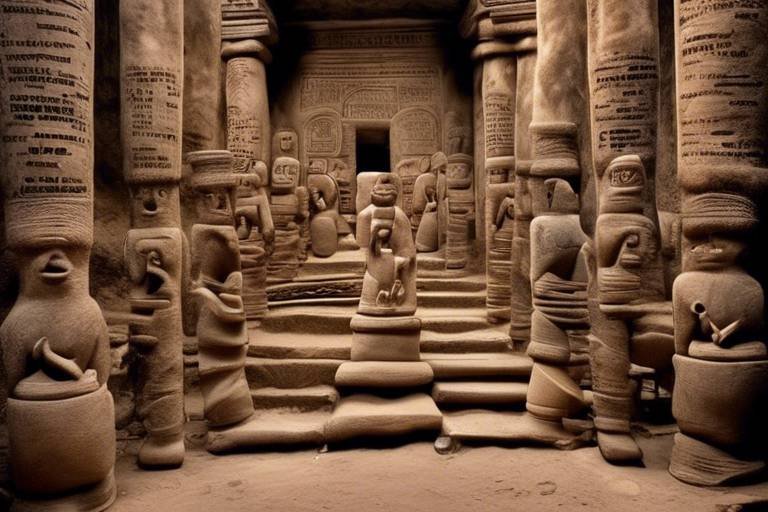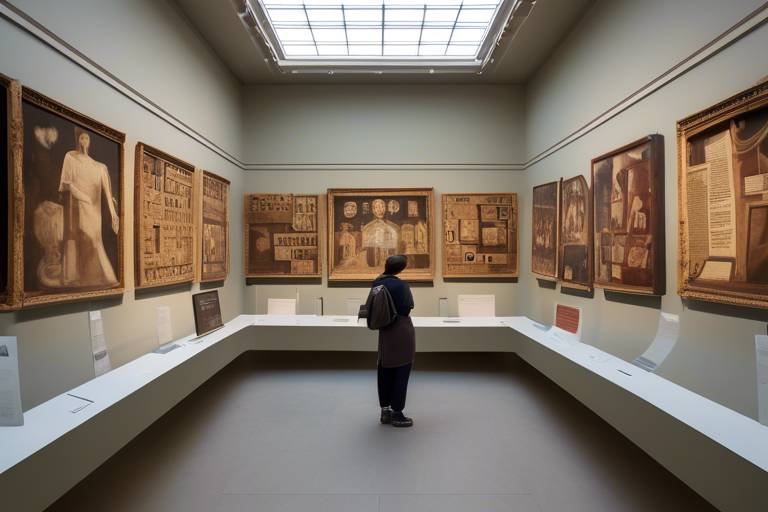The Concept of Divine Kingship in Ancient Egypt
Divine kingship in ancient Egypt was not merely a political or social construct; it was a deeply ingrained belief system that shaped the very fabric of Egyptian society. The Pharaoh, considered a living god on earth, held a unique and revered position that transcended mortal boundaries. This divine status was not just a title but a sacred duty that carried immense responsibilities and significance.
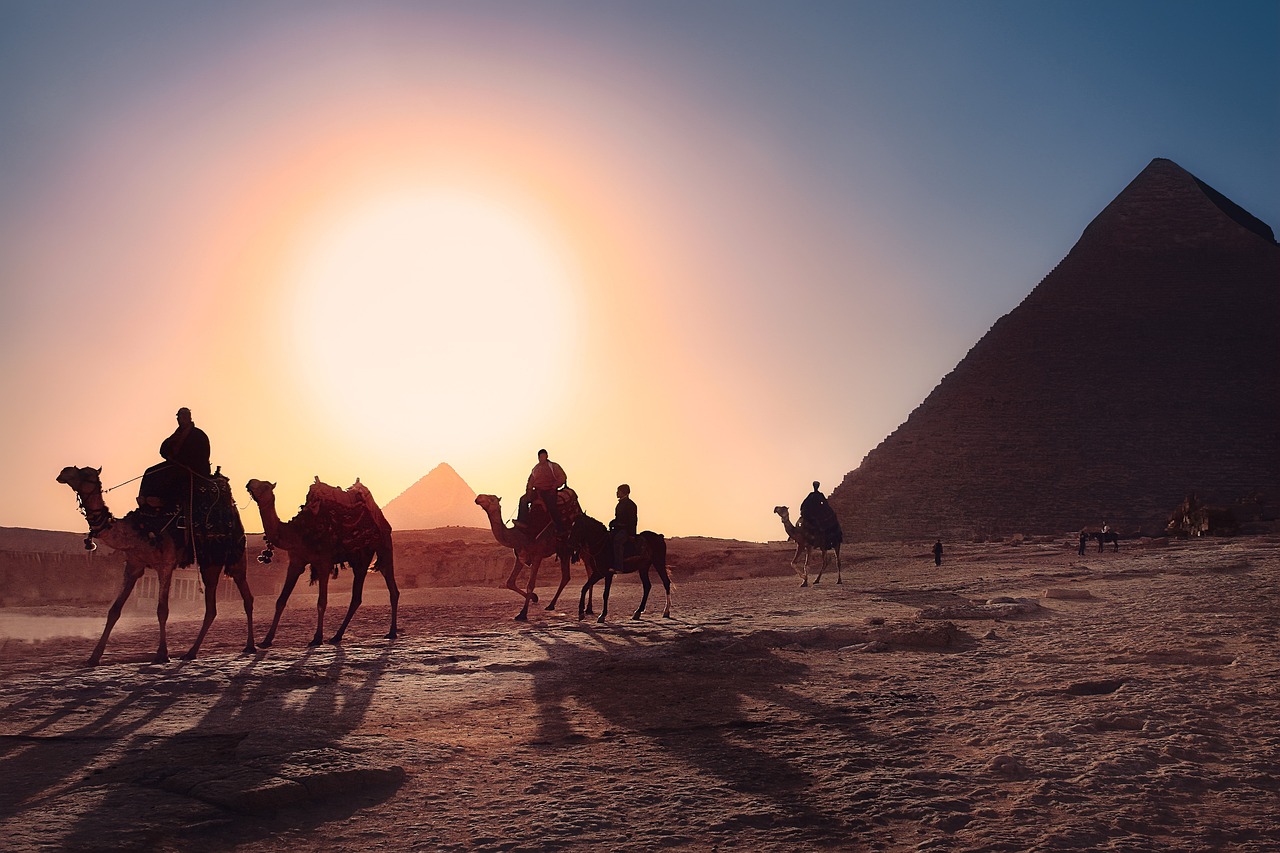
Origins of Divine Kingship
The concept of divine kingship in ancient Egypt has deep roots that stretch back to the earliest periods of Egyptian history. The belief that Pharaohs were not mere mortal rulers but divine beings with a direct connection to the gods was a foundational element of Egyptian society. This belief system was intricately woven into the fabric of Egyptian culture, shaping the political, religious, and social structures of the civilization.
Origins of divine kingship can be traced to the pre-dynastic periods of ancient Egypt when tribal leaders were elevated to the status of intermediaries between the earthly realm and the divine realm. Over time, these leaders evolved into the Pharaohs, who were believed to possess divine essence and authority granted by the gods themselves. The concept of divine kingship was thus born out of the need to establish a powerful central authority that could maintain order and harmony in a society deeply rooted in religious beliefs.
As the civilization of ancient Egypt developed, the Pharaoh's role as a deity became more pronounced and elaborate. The Pharaoh was not only a political leader but also a religious figure responsible for maintaining Ma'at, the cosmic order of the universe. The Pharaoh's actions were believed to directly impact the balance of the world, making him a crucial link between the mortal realm and the divine realm.
To reinforce the Pharaoh's divine status, symbolism and rituals played a significant role in ancient Egyptian society. The Pharaoh's regalia, such as the double crown and the crook and flail, were symbols of his divine authority and power. Ceremonial practices, including temple rituals and offerings to the gods, served to validate the Pharaoh's connection to the divine and solidify his position as the rightful ruler of Egypt.
The relationship between the Pharaoh and the Egyptian gods was central to the concept of divine kingship. The Pharaoh was considered the earthly embodiment of the gods Horus and Ra, among others, and his actions were believed to be guided by divine will. This close association with the gods elevated the Pharaoh to a status above ordinary mortals, granting him unparalleled legitimacy and reverence in the eyes of the ancient Egyptians.
Divine kingship not only served to legitimize the Pharaoh's rule but also to consolidate his political power. The belief that the Pharaoh was a divine being with a sacred duty to uphold Ma'at gave him absolute authority over the land and its people. This divine mandate allowed the Pharaoh to govern with unquestioned power and authority, ensuring stability and prosperity for the kingdom.
Succession in ancient Egypt was intricately tied to the concept of divine kingship. The Pharaoh's divine status was believed to be inherited through royal bloodlines, leading to a system of dynastic continuity that spanned centuries. The succession process was carefully orchestrated to maintain the divine lineage of the Pharaohs, ensuring the perpetuation of divine authority and the stability of the kingdom.
The concept of divine kingship had far-reaching implications for ancient Egyptian society, shaping its social, cultural, and religious landscape. The Pharaoh's divine status influenced every aspect of life in Egypt, from religious practices and artistic expressions to political structures and social hierarchies. The belief in divine kingship permeated all levels of society, reinforcing the unity and coherence of the civilization.
However, the Pharaoh's divine authority was not without its challenges. Throughout Egyptian history, there were instances of resistance to the Pharaoh's rule, both from within the kingdom and from external forces. These challenges to divine authority posed threats to the stability of the state and the continuity of the royal lineage, highlighting the delicate balance between divine legitimacy and political power.
The legacy of divine kingship in ancient Egypt endures to this day, leaving a lasting imprint on the study of history and religion. The concept of the Pharaoh as a divine ruler continues to fascinate scholars and enthusiasts alike, offering a glimpse into the complex interplay between religion, politics, and society in one of the world's most enduring civilizations.
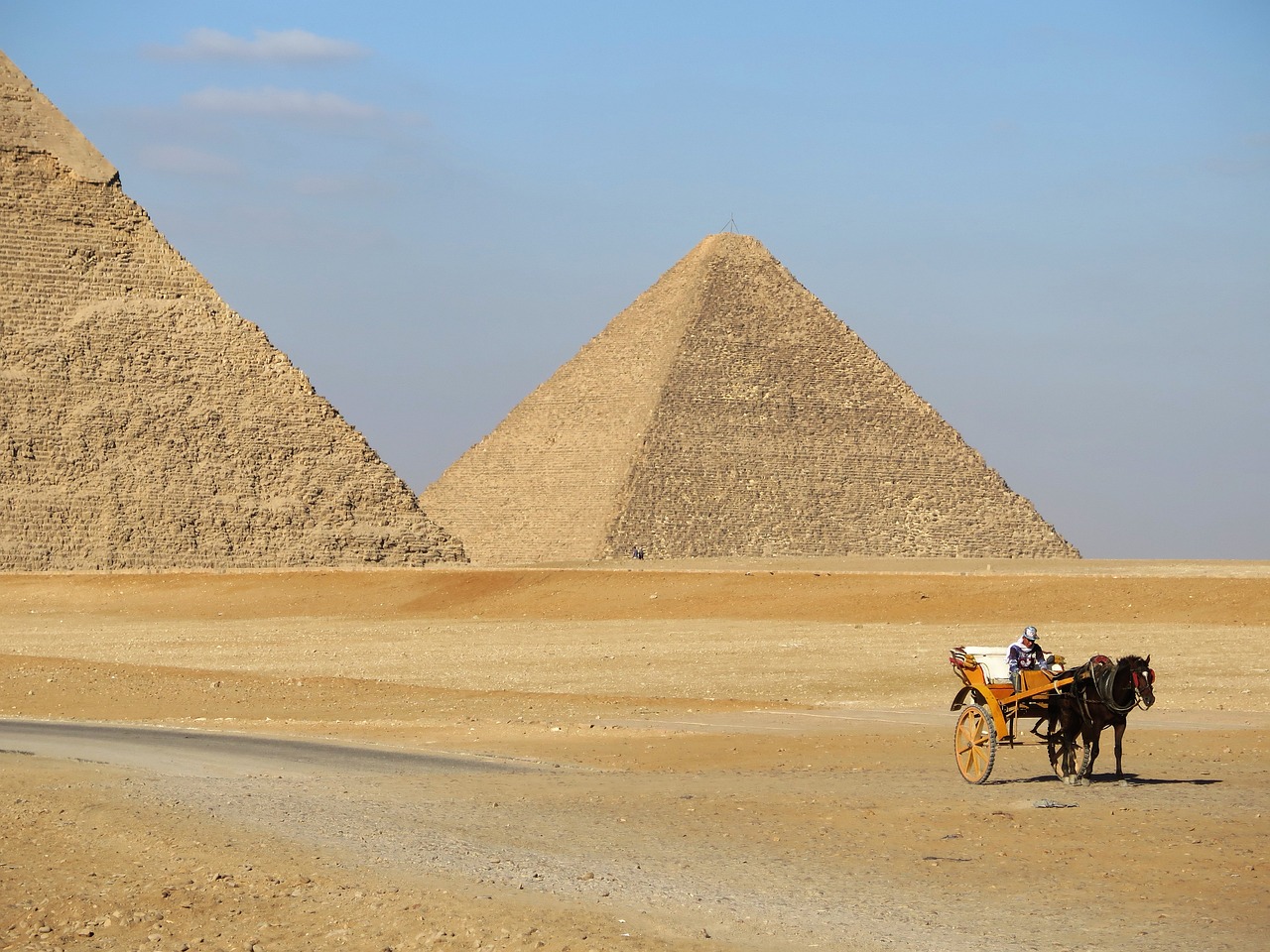
Role of Pharaoh as a Deity
The role of the Pharaoh as a deity in ancient Egypt was central to the religious and political fabric of the society. The Pharaoh was not only a mortal ruler but also believed to be a divine figure, embodying the gods on earth. This divine status granted the Pharaoh immense power and authority, as well as significant responsibilities in maintaining cosmic order and harmony.
Symbolically, the Pharaoh's role as a deity was reinforced through elaborate rituals and ceremonies that emphasized his connection to the divine realm. The Pharaoh acted as a mediator between the gods and the people, ensuring the favor of the deities through offerings and prayers. These rituals served to legitimize the Pharaoh's rule and solidify his position as the ultimate authority in ancient Egypt.
Furthermore, the Pharaoh's divine status was intricately linked to the concept of Ma'at, the principle of truth, justice, and order in Egyptian cosmology. As a deity, the Pharaoh was tasked with upholding Ma'at in society, ensuring balance and harmony prevailed. Failure to maintain Ma'at could result in cosmic chaos and the wrath of the gods, highlighting the crucial role of the Pharaoh as a divine ruler.
Within the pantheon of Egyptian gods, the Pharaoh held a unique position, often depicted alongside deities in temple reliefs and texts. This close relationship with the gods reinforced the Pharaoh's divine authority and underscored his role as a living god among mortals. The Pharaoh's actions and decisions were believed to directly impact the cosmic order, making his divine status essential for the well-being of the kingdom.
In essence, the role of the Pharaoh as a deity in ancient Egypt transcended mere mortal rulership, elevating the monarch to a divine status that shaped the religious, political, and social dynamics of the civilization. The Pharaoh's dual nature as both a mortal and a god symbolized the interconnectedness of the earthly realm with the divine, embodying the essence of divine kingship in ancient Egyptian society.
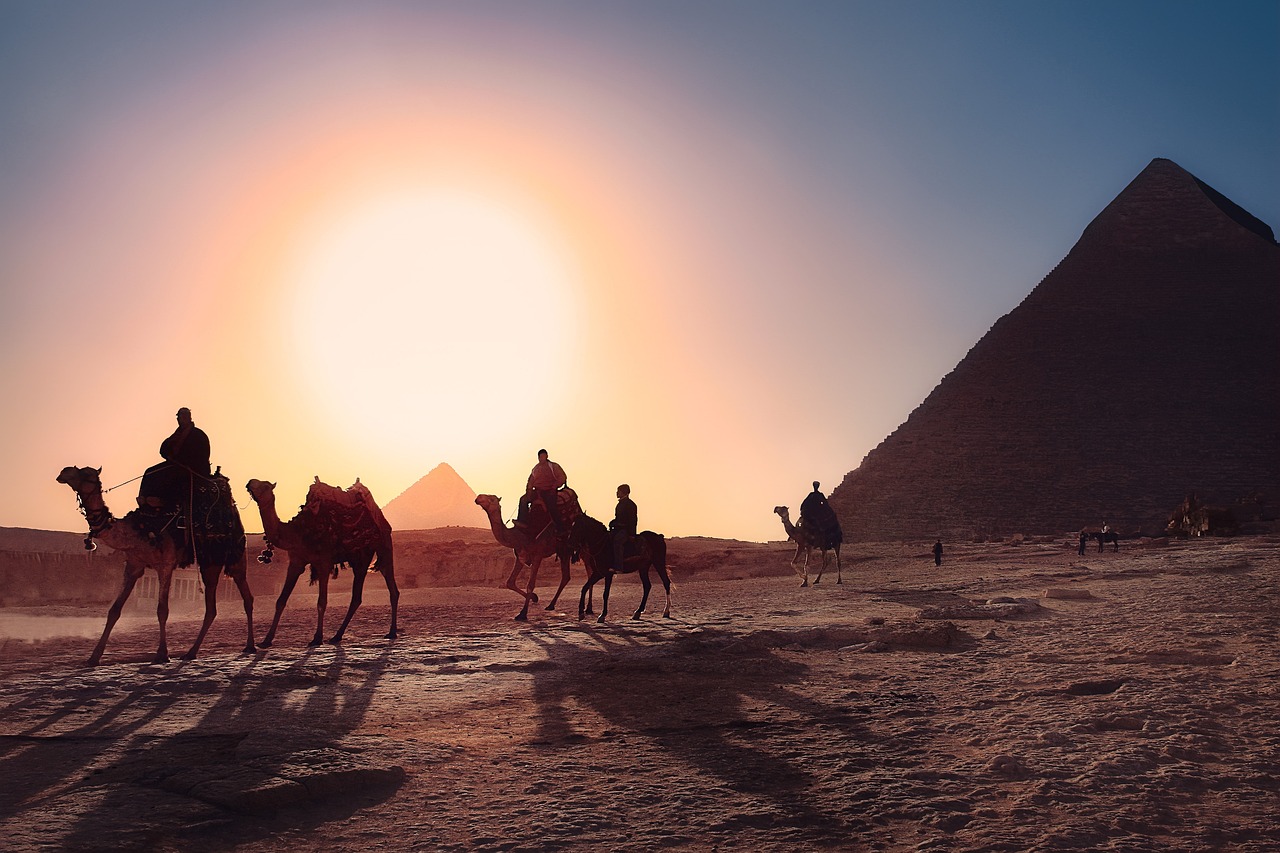
Symbolism and Rituals
Symbolism and rituals played a crucial role in reinforcing the divine authority of the Pharaoh in ancient Egypt. The use of symbols such as the ankh representing life, the udjat eye symbolizing protection, and the crook and flail signifying the Pharaoh's role as a shepherd of the people, all served to emphasize the Pharaoh's divine status. These symbols were not merely decorative but held deep religious and political significance, communicating the Pharaoh's connection to the gods and his responsibilities as a ruler.
Rituals were an integral part of ancient Egyptian society, with many ceremonies and practices aimed at maintaining the Pharaoh's divine kingship. The coronation ritual, for example, was a highly elaborate ceremony that symbolized the Pharaoh's accession to the throne and his divine mandate to rule. The sed festival, a jubilee celebration held to renew the Pharaoh's strength and authority, further solidified his divine legitimacy in the eyes of the people.
Moreover, the construction of monumental temples and pyramids served as architectural expressions of the Pharaoh's divine status. These structures were not only places of worship but also symbols of the Pharaoh's eternal presence and his close relationship with the gods. The intricate hieroglyphic inscriptions adorning these structures conveyed religious texts and divine messages, further reinforcing the Pharaoh's divine role in the cosmic order.
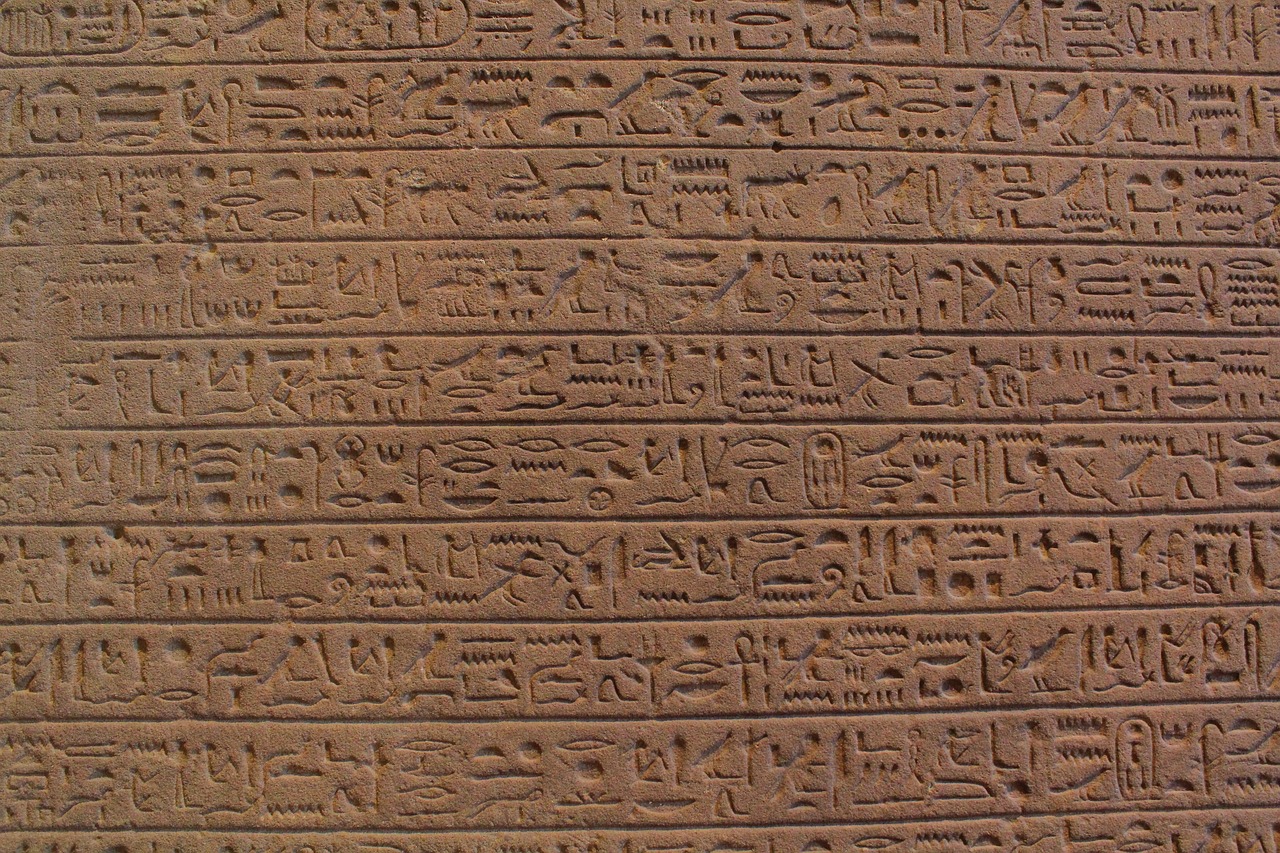
Relationship with Gods
When exploring the intriguing world of ancient Egypt, one cannot overlook the captivating concept of Divine Kingship. This belief system, deeply ingrained in the society of the time, elevated the Pharaohs to the status of divine rulers, blurring the lines between mortal and deity.
Central to the concept of Divine Kingship in ancient Egypt was the intricate relationship between the Pharaoh and the pantheon of Egyptian gods. The Pharaoh was not merely a political leader but also a divine intermediary, bridging the gap between the mortal realm and the divine realm.
This unique relationship was symbolized in various ways, such as through elaborate rituals and ceremonies that showcased the Pharaoh's connection to the gods. The Pharaoh was believed to embody the divine essence of the gods, carrying out their will on earth and ensuring harmony between the mortal and divine worlds.
Moreover, the Pharaoh's interactions with the gods were not one-sided. It was believed that the gods actively influenced the Pharaoh's decisions and actions, guiding him in matters of statecraft and governance. This symbiotic relationship between the Pharaoh and the gods reinforced the notion of divine kingship and solidified the Pharaoh's authority in the eyes of the ancient Egyptians.
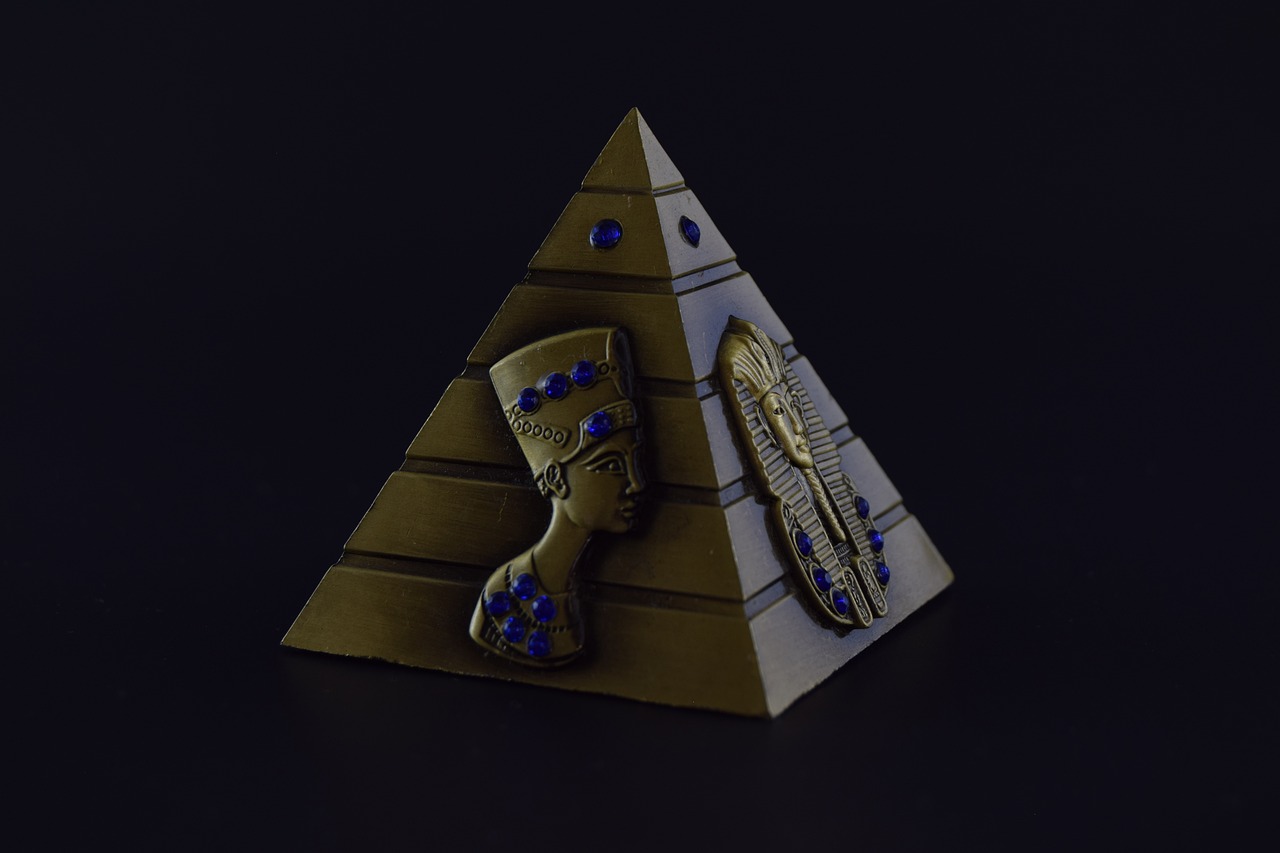
Legitimacy and Power
Legitimacy and power were intertwined concepts in the ancient Egyptian belief system of divine kingship. The Pharaoh's divine status served as the foundation for his legitimacy as a ruler, granting him the authority to govern the land and its people. This divine legitimacy was not merely a symbolic gesture but a practical tool used to consolidate and maintain power in the ancient Egyptian society.
One key aspect of the Pharaoh's legitimacy was his role as the intermediary between the gods and the people. By embodying divine qualities and being seen as a living god on earth, the Pharaoh was able to command the respect and obedience of his subjects. This divine connection gave the Pharaoh the power to enact laws, lead military campaigns, and make decisions that impacted the entire kingdom.
Moreover, the concept of divine kingship provided a sense of continuity and stability to the Egyptian state. The belief that the Pharaoh was a god-king meant that his rule was sanctioned by the divine order of the universe, ensuring the smooth succession of power from one ruler to the next. This sense of continuity helped maintain social order and prevent political upheaval within the kingdom.
Additionally, the Pharaoh's divine status was often used as a tool for propaganda and political control. The belief in the Pharaoh's divine right to rule was propagated through art, architecture, and religious ceremonies, reinforcing the idea of his absolute power and authority. This propaganda machine helped solidify the Pharaoh's position as the supreme leader of Egypt, ensuring obedience and loyalty from his subjects.
Overall, the concept of divine kingship played a crucial role in legitimizing the Pharaoh's power and authority in ancient Egypt. It provided a religious and ideological framework that justified his rule, maintained social order, and ensured the continuity of the royal dynasty. The combination of divine legitimacy and political power made the Pharaoh the ultimate ruler in the eyes of the ancient Egyptians, shaping the course of their history and society for centuries to come.
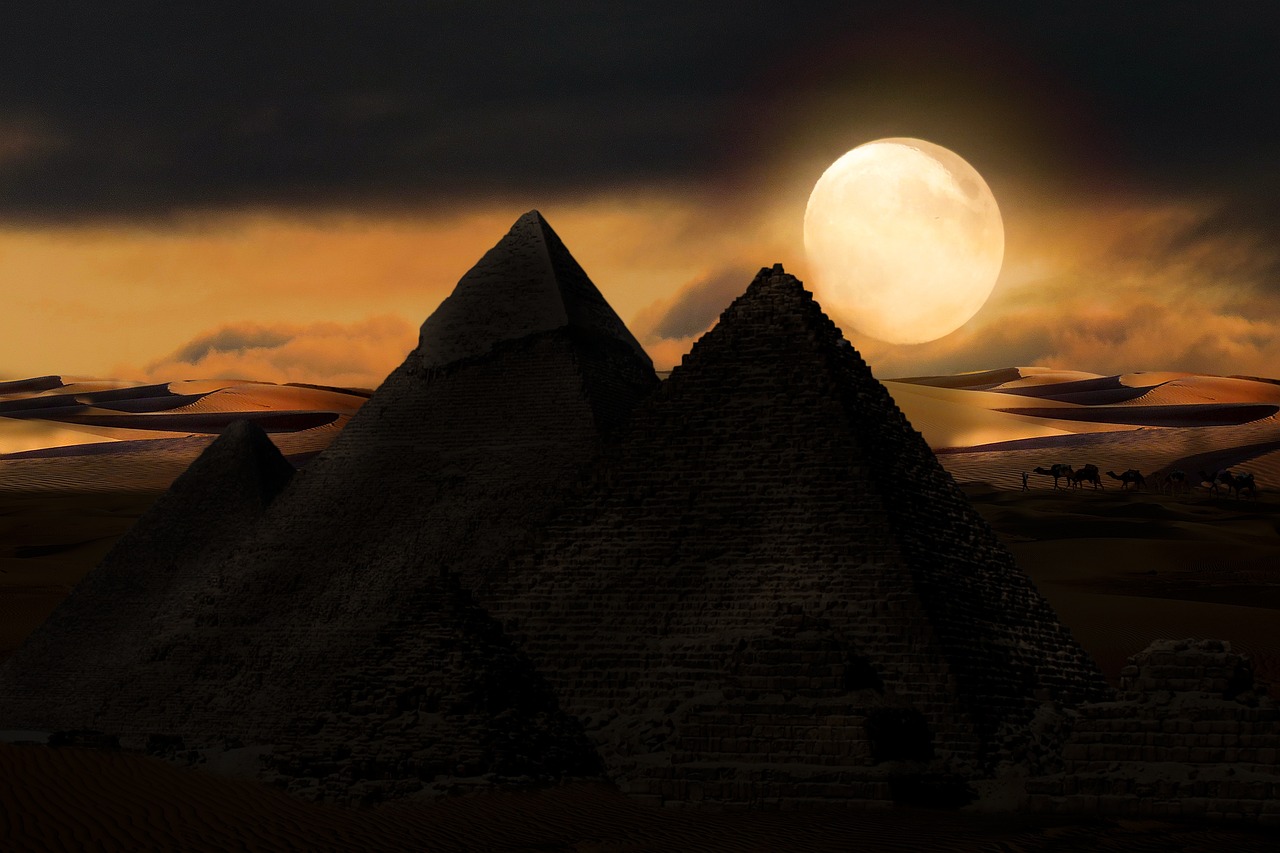
Succession and Dynastic Continuity
Succession and Dynastic Continuity in ancient Egypt were deeply intertwined with the belief in divine kingship, shaping the very fabric of Egyptian society and politics. The Pharaoh's succession was not merely a transfer of power from one ruler to another; it was a sacred process guided by religious beliefs and rituals. The concept of divine kingship dictated that the Pharaoh was not just a political leader but also a divine being, a living god on earth chosen by the gods themselves to rule.
Upon the death of a Pharaoh, his successor, usually his son, would ascend to the throne, continuing the dynastic lineage. This process of succession was crucial for maintaining stability and order in ancient Egypt, as it ensured the continuity of divine authority and legitimacy. The new Pharaoh would often undergo elaborate coronation rituals and ceremonies to reaffirm his divine status and establish his rule.
Moreover, the belief in divine kingship influenced the very structure of Egyptian society, with the Pharaoh at the pinnacle of the social hierarchy. The royal family, nobles, priests, and officials all played essential roles in supporting the Pharaoh's divine authority and ensuring the continuity of the dynasty. Loyalty to the Pharaoh was not just a political obligation but a religious duty, as the stability of the kingdom was believed to depend on the Pharaoh's divine mandate.
Throughout Egyptian history, the succession of Pharaohs and the continuity of royal dynasties were not without challenges. Rival claimants to the throne, power struggles within the royal family, and external threats posed significant risks to the stability of the dynasty. However, the belief in divine kingship provided a powerful tool for legitimizing the Pharaoh's rule and quelling dissent, as it was seen as a direct mandate from the gods themselves.
As a result, the concept of divine kingship not only shaped the succession process but also influenced the broader political and social dynamics of ancient Egypt. The continuity of royal dynasties was seen as essential for upholding Ma'at, the cosmic order and harmony, and ensuring the prosperity and well-being of the kingdom. The Pharaoh, as the divine ruler, was not just a mortal king but a living link between the earthly realm and the divine world, responsible for maintaining balance and justice in society.
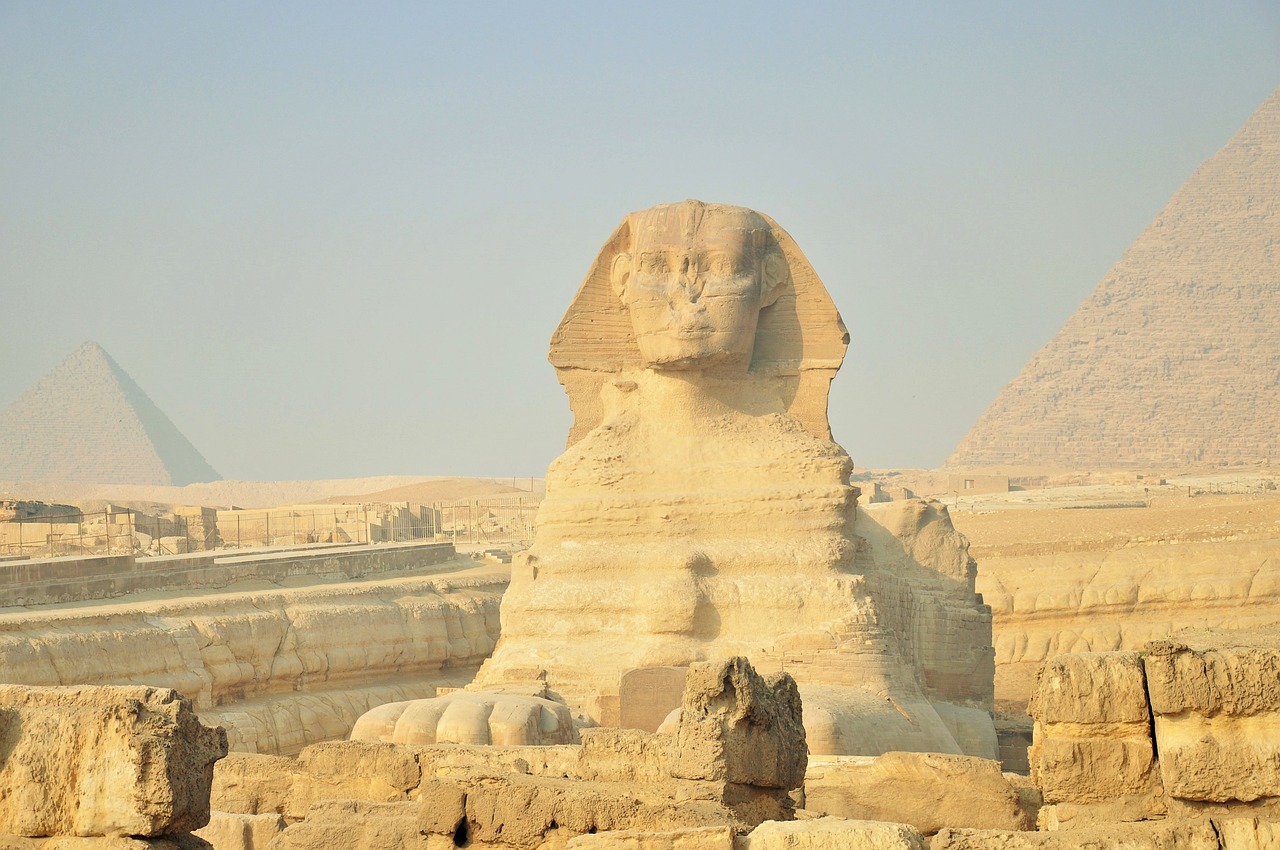
Impact on Society
In ancient Egypt, the concept of divine kingship had a profound impact on every aspect of society, shaping the beliefs, values, and structures that defined Egyptian civilization. The Pharaoh, as the divine ruler, was not just a political leader but also a religious figure with immense influence over the spiritual and social fabric of the society.
One of the key impacts of divine kingship was the establishment of a hierarchical social order where the Pharaoh stood at the pinnacle, embodying the connection between the mortal realm and the divine realm. This hierarchical structure permeated all levels of society, dictating roles, responsibilities, and interactions among individuals.
Moreover, the belief in the Pharaoh's divine status fostered a sense of unity and cohesion among the Egyptian people. It provided a shared identity and purpose, reinforcing the collective consciousness and solidarity that characterized ancient Egyptian society. The rituals and ceremonies associated with divine kingship served to reaffirm this communal bond and reinforce the legitimacy of the Pharaoh's rule.
Furthermore, the concept of divine kingship influenced various aspects of daily life, from religious practices to artistic expressions. The construction of monumental temples and statues dedicated to the Pharaoh as a divine being reflected the society's devotion and reverence towards the royal figure. Artworks, such as hieroglyphs and murals, often depicted the Pharaoh in a divine light, emphasizing his role as the intermediary between the gods and the people.
Additionally, the economic and political systems of ancient Egypt were intricately linked to the belief in divine kingship. The Pharaoh's authority, derived from his divine mandate, extended to the management of resources, distribution of wealth, and administration of justice. The concept of Ma'at, the cosmic order and balance, guided the Pharaoh's decisions and policies, ensuring stability and prosperity within the society.
In conclusion, the impact of divine kingship on ancient Egyptian society was profound and far-reaching, permeating all aspects of life and shaping the cultural, religious, and political landscape of the civilization. The legacy of this belief system continues to resonate in modern interpretations of Egyptian history and remains a testament to the enduring influence of the Pharaoh as a divine ruler.
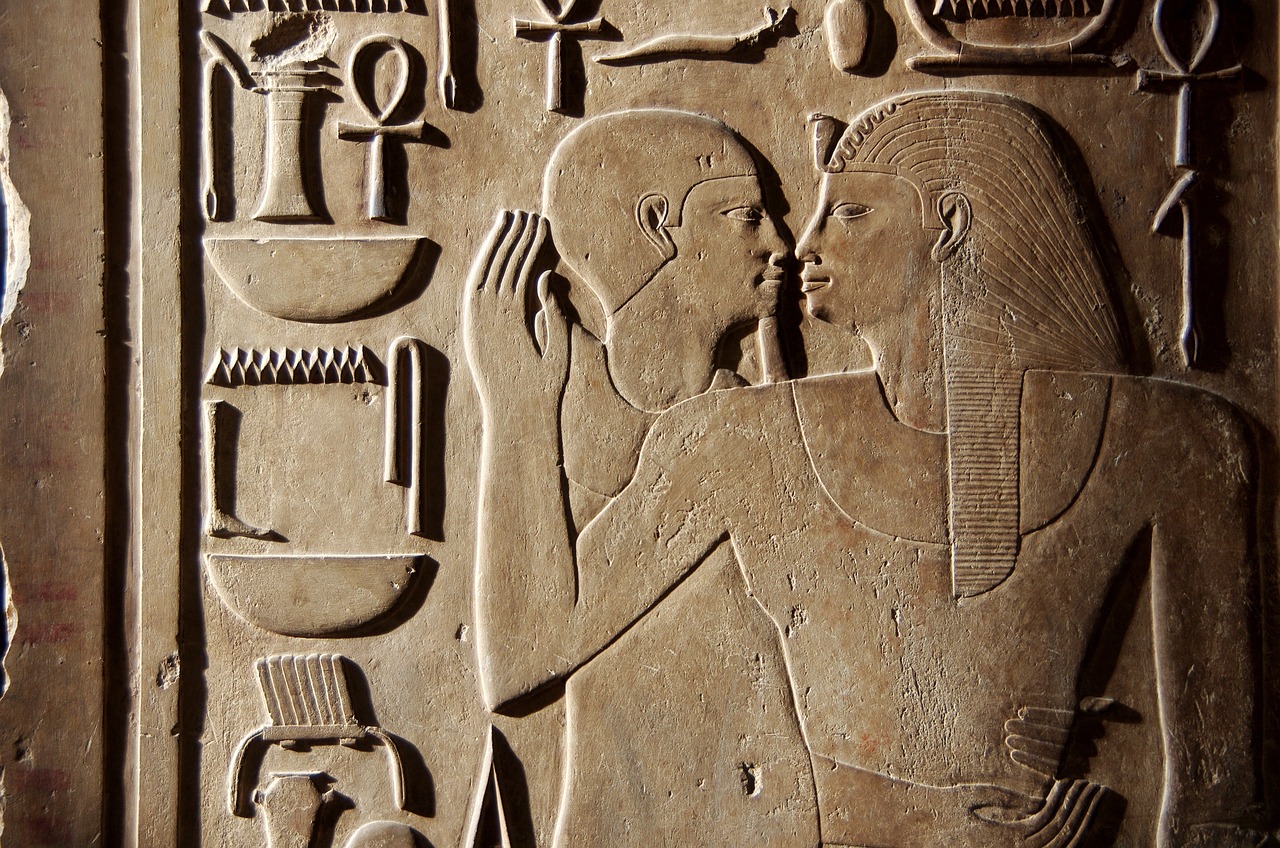
Challenges to Divine Authority
Challenges to Divine Authority were not uncommon in ancient Egypt, despite the widespread belief in the Pharaoh's divine status. The concept of divine kingship faced various challenges that tested the authority and legitimacy of the Pharaoh as a divine ruler. One significant challenge was the emergence of powerful priesthoods that sometimes sought to assert their own influence and authority over religious matters, challenging the Pharaoh's role as the intermediary between the gods and the people.
Moreover, internal power struggles within the royal family or among the nobility could pose serious challenges to the Pharaoh's divine authority. Ambitious individuals or factions might question the Pharaoh's legitimacy, leading to political instability and undermining the unity of the kingdom. These internal challenges often required the Pharaoh to demonstrate his divine favor through grand ceremonies and public displays of power to maintain control and authority.
External threats, such as foreign invasions or rebellions, also tested the Pharaoh's divine authority. When faced with military conflicts or social unrest, the Pharaoh had to prove his divine mandate by invoking the support of the gods and demonstrating his ability to protect the kingdom from external enemies. Failure to do so could weaken the belief in the Pharaoh's divine protection and lead to further challenges to his authority.
Additionally, economic hardships or natural disasters could shake the foundation of divine kingship in ancient Egypt. When crops failed, floods ravaged the land, or epidemics spread, the people might question the Pharaoh's ability to maintain the cosmic order and protect them from harm. In such challenging times, the Pharaoh's divine authority was put to the test, requiring him to take decisive actions to restore stability and reaffirm his divine connection to the gods.
In response to these challenges, the Pharaoh often relied on the support of the priesthood, the military, and the bureaucracy to maintain his divine authority. By reinforcing the symbolic rituals and ceremonies that emphasized his divine status, the Pharaoh could overcome challenges to his authority and restore order in the kingdom. The ability to navigate these challenges and uphold divine kingship was crucial for the stability and continuity of ancient Egyptian society.
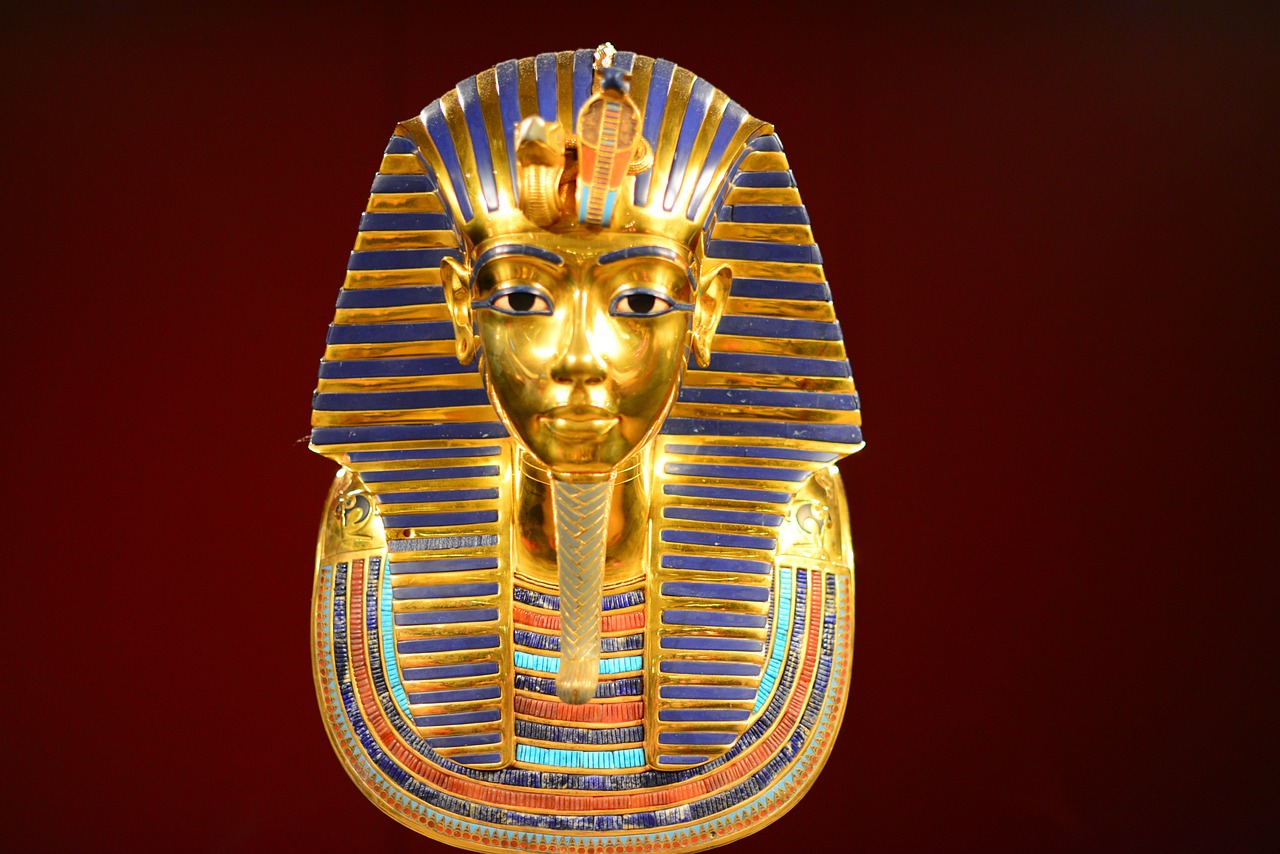
Legacy and Influence
When exploring the legacy and influence of the concept of divine kingship in ancient Egypt, one cannot underestimate its profound impact on the culture, religion, and history of this ancient civilization. The belief in the Pharaoh as a divine ruler transcended mere mortal existence, shaping the very fabric of Egyptian society for centuries.
The legacy of divine kingship continues to resonate in modern times, serving as a testament to the enduring power of symbolism and ritual in shaping human beliefs and behaviors. The influence of the Pharaoh's divine status extended far beyond the confines of the royal court, permeating every aspect of Egyptian life.
Through intricate symbolism and elaborate rituals, the Pharaoh's divine authority was not only upheld but celebrated, reinforcing the social hierarchy and legitimizing the ruler's power in the eyes of the populace. The intricate relationship between the Pharaoh and the gods was a central tenet of Egyptian society, with the ruler acting as a mediator between the mortal realm and the divine.
The legacy of divine kingship also left a lasting imprint on the political landscape of ancient Egypt, with the belief in the Pharaoh's divine mandate serving as a cornerstone of legitimacy and authority. The succession process and dynastic continuity were deeply intertwined with the concept of divine rulership, ensuring the smooth transition of power from one Pharaoh to the next.
Despite its enduring legacy, the concept of divine kingship was not without its challenges. Instances of resistance to the Pharaoh's divine authority posed threats to the stability of the ancient Egyptian state, highlighting the delicate balance between divine legitimacy and political power.
In conclusion, the legacy and influence of divine kingship in ancient Egypt are undeniable, shaping the course of history and leaving an indelible mark on the cultural landscape of the region. By delving into the complexities of this ancient belief system, we gain valuable insights into the intersection of religion, politics, and society in one of the world's most fascinating civilizations.
Frequently Asked Questions
- What is divine kingship in ancient Egypt?
Divine kingship in ancient Egypt refers to the belief that the Pharaoh was not only a political ruler but also a divine figure, considered to be a living god on earth. This concept played a crucial role in the religious and political structure of ancient Egyptian society.
- How did the Pharaoh's divine status impact society?
The Pharaoh's divine status had a profound impact on ancient Egyptian society, shaping religious beliefs, cultural practices, and political structures. It provided legitimacy to the ruler's authority, influenced succession processes, and contributed to the stability of the kingdom.
- What were the symbolic representations associated with divine kingship?
Symbolism played a significant role in reinforcing the Pharaoh's divine authority. Various symbols, such as the crook and flail, the double crown, and the use of ritualistic regalia, were employed to emphasize the Pharaoh's connection to the gods and his role as a divine intermediary.
- Were there any challenges to the Pharaoh's divine authority?
Despite the reverence accorded to the Pharaoh as a divine ruler, there were instances of challenges to his authority. Rebellions, power struggles, and shifts in religious beliefs sometimes posed threats to the stability of the ancient Egyptian state and the Pharaoh's divine legitimacy.
- What is the legacy of divine kingship in ancient Egypt?
The concept of divine kingship left a lasting legacy in ancient Egyptian culture and history. It influenced art, architecture, religious practices, and the development of royal power structures. The enduring impact of divine kingship can still be seen in the study of ancient Egypt today.
















